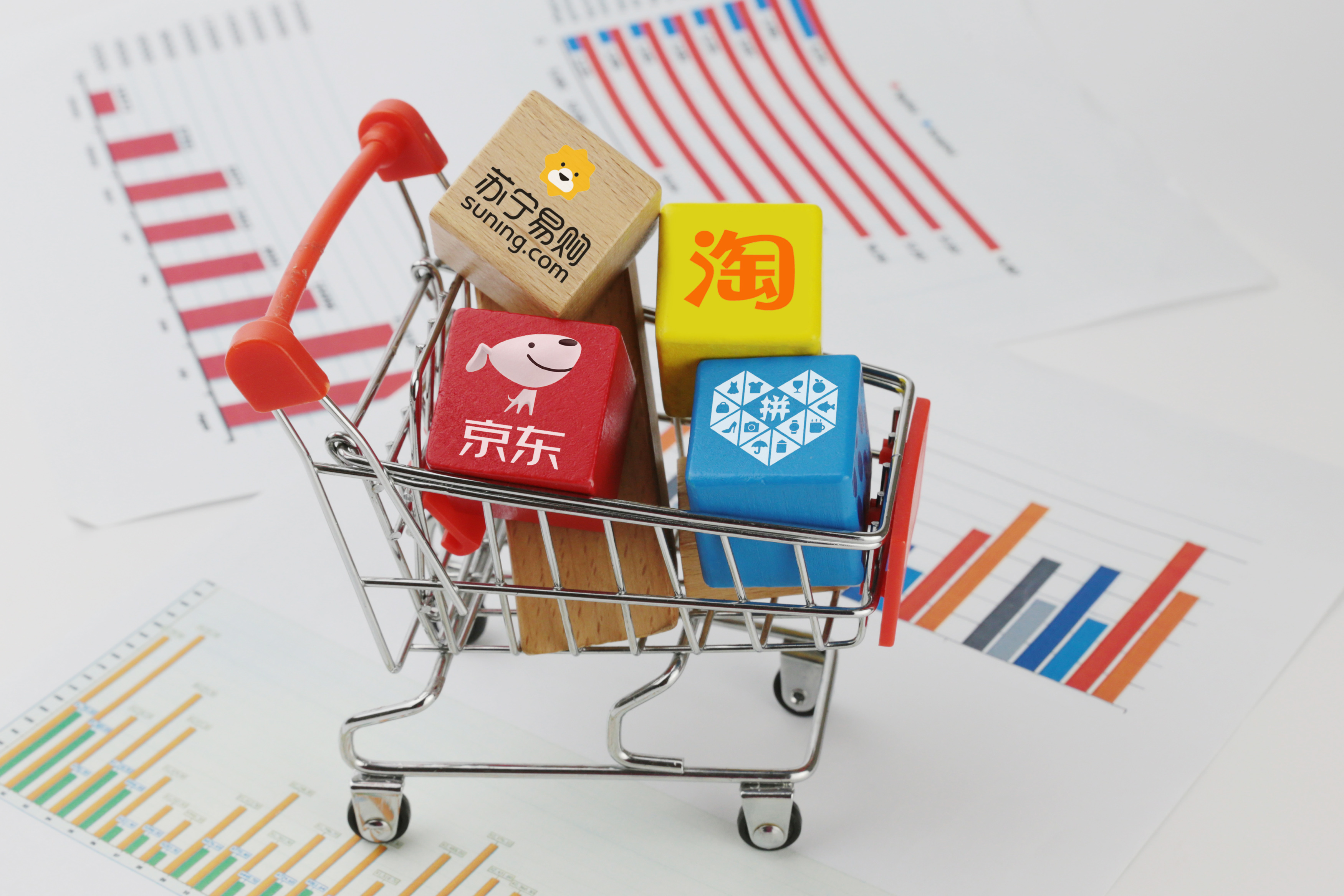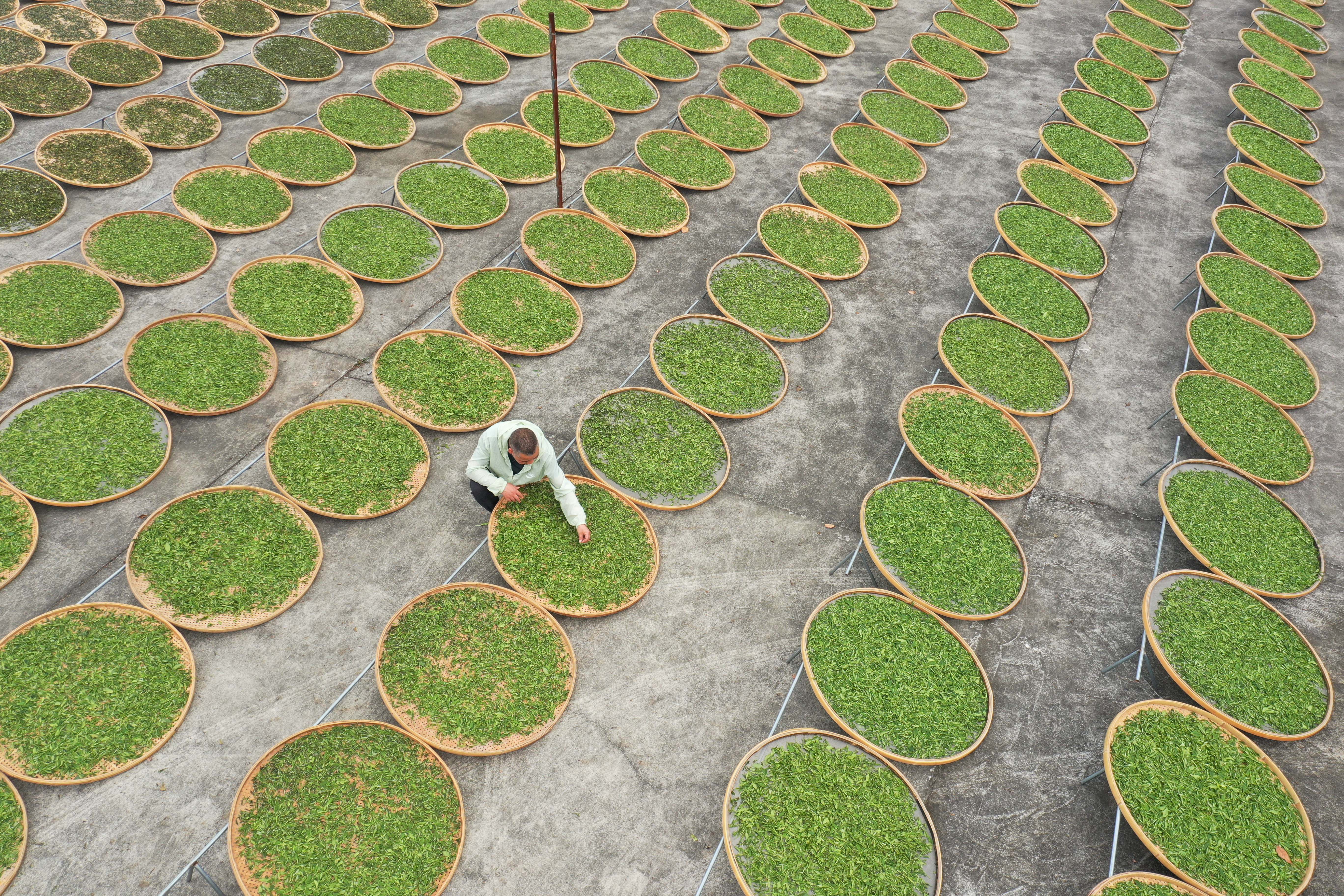Cross-Border E-commerce Can Help Alleviate Poverty in Global South

Some Chinese e-commerce platforms like Alibaba, JD.com and Pinduoduo were instrumental in observing the COVID-19 restrictions. (PHOTO:VCG)
By Conteh Barbah Mohamed
The Chinese experience in cross-border e-commerce evolution and development, can be viewed as inspiration in the context of poverty alleviation in the Global South, especially in Africa.
Poverty has been an alarming topic in the Global-South countries, especially in Sub-Sahara Africa, where the prevalence of both abject and relative types of poverty is clearly seen. According to researchers, Africa has remained the most affected continent by the COVID-19 pandemic, with respect to poverty increase and reduction of household income. Based on the estimation made by the United Nations Conference for Trade and Development, the percentage of African people living below the poverty line was anticipated to increase by 3 percent in 2021. However, the continent is blessed with numerous riches and a youthful workforce. What it needs is an appropriate platform to stimulate its development. I believe that cross-border e-commerce could be one of the critical means to poverty alleviation in Africa.
In the late 1970s, when China embarked on its economic reform, millions of people began to be lifted out of poverty. Finally, in 2021 the nation has achieved total alleviation of poverty. I believe cross-border e-commerce played an important role in this.
Some Chinese e-commerce platforms like T. mall (Alibaba), JD.com, and Pinduoduo, were instrumental in observing the COVID-19 restrictions, from where international students in the country can buy goods online with no or less risk of contacting the virus. Furthermore, this shopping method also served to save time, money, and transportation cost for customers. In addition, these platforms help most of us foreign students to remain in China despite the pandemic, as we were able to buy everything from clothing and foodstuff, to cosmetics. As a significant percentage of international students cook for themselves, the e-commerce platforms provide almost everything needed by international students to cook at home.
From my experience, most of the raw foodstuff like palm oil, Maggi, fish, and numerous fruits are available in Africa in a huge quantity, at a much lower price than in China. The challenge is that we encounter too much food waste and loss due to inappropriate storage facilities, and there are no appropriate means of selling these products to raise income, apart from smuggling them to neighboring countries to be sold at the cheapest cost. This is a significant disadvantage to local farmers and SMEs. An efficient e-commerce platform can help salvage this situation and increase household income in Africa, especially in my country Sierra Leone. This can also create employment, as the cross-border e-commerce industry entails an extended value chain, based on my observation in China.
In recent years, the Chinese cross-border e-commerce generated huge revenue in the billions of dollars that have contributed to their economic development, despite the pandemic.
The current African e-commerce entails challenges like inadequate technological infrastructure, inefficient banking and payment systems, transportation costs, inadequate institutional infrastructure and security threats. Learning from the Chinese e-commerce models could help solve this problem.
Regarding the impact on poverty alleviation, the cross-border e-commerce is responsible for having helped to alleviate poverty in households, various industries, and the governmental sector. We need to give government and key business stakeholders reasons to establish reliable e-commerce infrastructure for a better Africa. China can also help Africa with effective and efficient training, finance, and joint venture business for achieving an outstanding cross-border industry, thereby alleviating abject poverty.
Conteh Barbah Mohamed is from Sierra Leone. This article belongs to the Outcome of 2021 MA Teaching Project "PBL Pedagogy on China Experience Sharing” by Li Li, Associate Professor, CIDGA, CAU.


